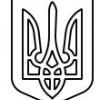"Fix Bayonets!" - Documentary on the 100th anniversary of the Balkan War
-
Последна активност
-
- 304 мнения
- 10989 прегледa
-
- 146 мнения
- 6876 прегледa
-
Папа римский Пий II ЭНЕЙ СИЛЬВИЙ ПИККОЛОМИНИ Богемская история и О ЛИТВЕ
От Геннадий Воля, in Russian
- 2 мнения
- 5 прегледa
-
Светът иска да регулира изкуствения интелект, но не знае как 1 2 3 4 7
От Р. Теодосиев, in Изкуствен Интелект
- 168 мнения
- 10847 прегледa
-
- 2181 мнения
- 181793 прегледa
-
-
Последно разглеждащи 0 Потребители
- No registered users viewing this page.




Препръчано мнение
Напиши мнение
Може да публикувате сега и да се регистрирате по-късно. Ако вече имате акаунт, влезте от ТУК , за да публикувате.